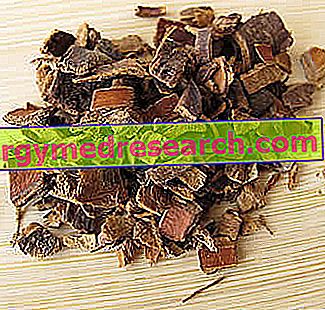
What is Fasturtec?
Fasturtec is a medicine that contains the active substance rasburicase. It is available as a powder and solvent for solution for infusion (drip into a vein).
What is Fasturtec used for?
Fasturtec is used for the treatment and prevention of hyperuricemia (increased levels of uric acid in the blood), acute (sudden) in order to prevent kidney failure. Fasturtec is used in patients with hematological malignancies (blood cancers) at risk of lysis or rapid tumor reduction at the beginning of chemotherapy (medicines to treat cancer).
The medicine can only be obtained with a prescription.
How is Fasturtec used?
Treatment with Fasturtec should be supervised by a physician who specializes in chemotherapy of hematological malignancies. Fasturtec is given before or at the start of chemotherapy. The recommended dose is 0.20 mg per kilogram body weight in children and adults, given as a daily infusion for up to seven days. The duration of treatment is adjusted according to the patient's uricemia (levels of uric acid in the blood) and the opinion of the doctor. The infusion should last 30 minutes.
How does Fasturtec work?
When patients with blood cancers start chemotherapy, they run the risk of developing hyperuricemia. This is because chemotherapy destroys cancer cells, decomposing the genetic material in the cells, and leads to a rapid increase in the levels of uric acid in the blood. The organsimus cannot dispose of too much uric acid and accumulates it in the kidneys causing its dysfunction (their action being stopped). The active substance in Fasturtec, rasburicase, is an enzyme called urate oxidase, which is capable of transforming uric acid into another chemical called allantoin. Allantoin can be easily excreted by the kidneys in the urine. The enzyme was originally extracted from a fungus, but in Fasturtec it is produced by a method known as "recombinant DNA technology": that is, it is obtained from a yeast in which a gene (DNA) has been introduced that makes it able to produce urate oxidase.
How has Fasturtec been studied?
Fasturtec was studied in four studies involving 372 patients. Two studies were chosen to determine the best dosage to use. In one of these studies involving 52 patients, Fasturtec was compared only with another treatment (allopurinol, the standard treatment for reducing uric acid levels). In this study, the main measure of effectiveness was the amount of uric acid in the blood, measured over 96 hours.
What benefit has Fasturtec shown during the studies?
Dosing determination studies revealed that, after 48 hours, Fasturtec at a dose of 0.20 mg / kg reduced uric acid levels to a normal level in 95% of patients. In the comparative study, Fasturtec was more effective than allopurinol: in the first 96 hours after treatment, patients treated with Fasturtec had a lower average uric acid level than patients treated with allopurinol (128.1 and 328.5 respectively) mg.h / dl).
What is the risk associated with Fasturtec?
The most common side effects seen with Fasturtec (between 1 and 10 patients in 100) are allergic reactions (rashes and hives) and high fever. During treatment, patients should be closely monitored for allergic reactions. For the full list of all side effects reported with Fasturtec, see the Package Leaflet.
Fasturtec should not be used in people who may be hypersensitive (allergic) to rasburicase or any of the other substances. Fasturtec should not be used in patients with a deficiency (low levels) of glucose-6-phosphate dehydrogenase (G6PD) or suffering from other metabolic disorders known to cause haemolytic anemia (low number of red blood cells caused by early cell destruction).
Why has Fasturtec been approved?
The Committee for Medicinal Products for Human Use (CHMP) decided that Fasturtec's benefits are greater than its risks for the treatment and prophylaxis of acute hyperuricemia, in order to prevent acute renal dysfunction, in patients with high-load hematological malignancies tumor and at risk of lysis or tumor reduction at the beginning of chemotherapy. The committee recommended the granting of the marketing authorization for Fasturtec.
More information on Fasturtec
On 23 February 2001, the European Commission issued a marketing authorization valid for Fasturtec, valid throughout the European Union, to Sanofi-Aventis. The authorization was renewed on February 23, 2006.
For the full version of the evaluation (EPAR) of Fasurtec, click here.
Last update of this summary: 02-2009



